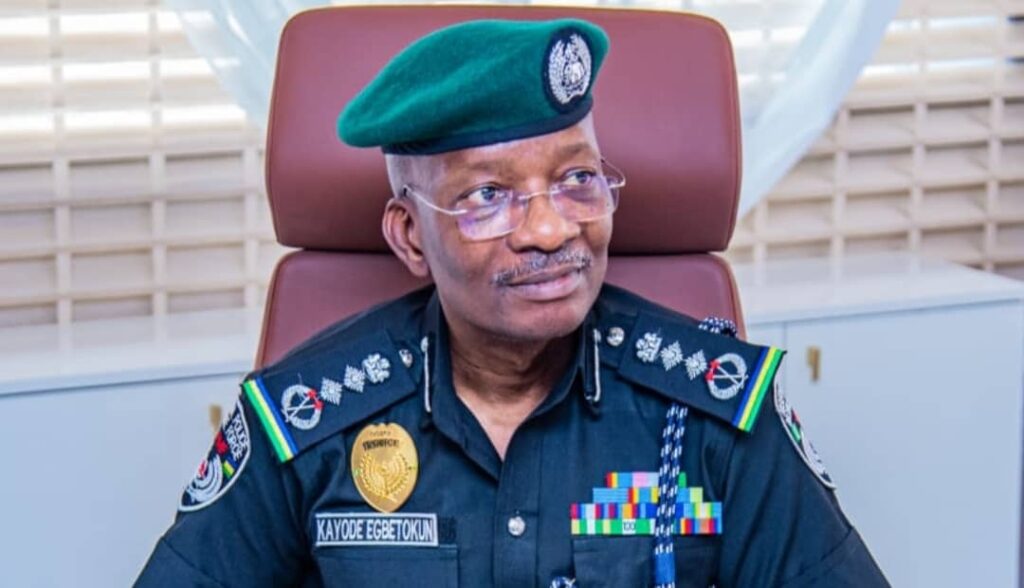
The deployment of Constabulary Police, like other stopgaps for inefficiencies of the Nigeria Police, underlines the Federal Government’s penchant for cosmetic piecemeal solutions to fundamental problems of policing and insecurity, Bertram Nwannekanma and Adewale Muritala, report.
In November 2020, the Nigerian Police Force recruited over 25,000 special constabularies to assist in community policing. The then Police Affairs Minister, Mohammed Dingyadi, said the special constabulary would complement regular police officers, who were being overwhelmed by rising insecurity nationwide.
Consequently, many citizens were engaged in various states under the enabling Nigerian Police Act 2020, particularly Part XIII, which specifies the mode of appointment, equipment, suspension, instruction and others.
While the constabularies have contributed to improving security in some communities nationwide, their remuneration and welfare remain challenging, as it is to the Nigerian Police generally.
In the absence of a proper structure and compliance with the rules of engagement, there have been cases of abuses that are causing advocates to start having a rethink. .
Recently, a video went viral showing two Special Constabularies in Oyo State demanding money from a Dutch female biker tourist who was touring African countries.
After a public outcry, Oyo State Commissioner of Police, Adebola Hamzat, identified them as Jimoh Lukman and Kareem Fatai, and ordered their dismissal for extortion.
The Commissioner said their dismissal from police constabulary followed a recommendation of the orderly room investigation. Another set of special constabularies were arrested in Kano State on allegation of extortion. Earlier, in September 2022, a large group of special Police Constabularies stormed the streets of Osogbo, Osun State capital, protesting non-payment of their salaries for 18 months.
The protesters dressed in police uniform held placards and flyers with inscriptions that read “pay us now”, “we are hungry”, and “we are dying”.
Force spokesperson, Muyiwa Adejobi, however, dismissed the protest, explaining then that members of the special constabulary scheme are mere volunteers and not regular police officers due for remuneration.
Besides remuneration, the rules of engagement and eligibility came to the fore in Kano where the Kano State Police Command enlisted 50 repentant thugs as special constabulary, sparking outrage.
The state Commissioner of Police, Usaini Gumel, who justified the initiative, noted that the command was battling to secure the state with an acute manpower deficit.
Concerned stakeholders said while the constabulary initiative was noble, it still falls short of the fundamental problems with the policing structure, for which a complete overhaul and decentralisation were overdue.
According to a security expert, Major Hassan Abdulaziz (rtd), regardless of the intention and justification for the recruitment of criminals into police constabulary, the process remains a threat to intelligence gathering.
The retired military intelligence said the claim of rehabilitation of the criminals is questionable. He said: “As far as I’m concerned those people are not supposed to be recruited into the constabulary service because that job is meant for people who are not employed. Constabulary jobs are meant for people who are engaged in a trade.
“Constabulary is not a full-time service but because of lack of employment, people have turned it to full-time police work. Now, bringing those repentant thugs into constabulary service is a complete threat to security. We always emphasised intelligence gathering and these people are criminals and by the time you map out strategies and it eventually leaks, don’t be surprised.
“What the police ought to have done was to make them voluntary informants to assist with information on crimes in their environment. But giving them uniforms is equated to giving them authority to arrest and this is dangerous to our service. Take for instance what happened with the civilian JTF in Maiduguri.
“Some of them were co-opted to serve in the civilian taskforce to give information but in the end, some of them were caught leaking operational information to terrorists. Some of them were rehabilitated by the Federal government and equipped with some form of trade. Incidentally, they returned into the enclave of the terrorists,” Abdulaziz noted.
Another security expert and retired military officer, Biodun Herbetson, said there are tendencies that the initiative would not attain 100 per cent success. Herbetson revealed that even if there are visible advantages, the disadvantage of admitting a criminal into the security circle could be regrettable.
He said: “It’s a 50/50 chance. The police may have succeeded in taking out some criminals from within the society and from the unemployment market. However, it will take much time to completely debar them from the criminal tendency they had hitherto got themselves engaged in and before then, there are also chances that they may take advantage of their engagement as constabulary, to discreetly commit crime.
“And, as to whether the recruitment of criminals is normal or not, we must also understand that, in everything, there are advantages and disadvantages. Therefore, this is not an exception. It is therefore to be noted that a criminal will always remain a criminal.
“I would rather say, it is unwise to throw the baby away with the bath water. Like I said, it is a 50/50 chance, but the police must keep a close tab on these individuals over a while by a special monitoring team. In the end, the police have succeeded in “recruiting” some ‘experts,’ so to speak, in criminality,” Herbetson said.
But a Professor of criminology, Department of Sociology, Bayero University (BUK), Kano, Sadiq Isah Radda said the police should rather be applauded for taking such a decision, especially when there is a dire need to fill manpower shortage in the police.
Radda, a former Executive Secretary to the Presidential Advisory Committee Against Corruption (PACAC), argued that what the police did was not unusual. He stressed that Nigeria is passing through unusual times in the area of security architecture, and therefore requires unusual solutions such as engaging the “repentant” criminals to assist the police in the fight against crimes and criminality in Kano.
“What the police have done can be said to be sweet and bitter in the sense that the action has its strengths as well as its weaknesses. “We are in such unusual times in the country when policymakers and implementers have to devise unusual strategies to secure the nation. What they have done in Kano is very commendable, taking into account that we are in unusual times. Many hands are needed to provide security to the people.
“So, if they can get offenders in the past, who have been screened and found worthy then we should give them the benefit of the doubt by embracing them, and building confidence in them.
“The offenders should be tasked with a lot of responsibility at the same time given close monitoring. I want to believe the police subjected these people to a lot of screening and took commitment from them to remain a better person henceforth,” Radda said.
Also, CP Gumel insisted that the room of repentance and subsequent success should not be subjected to condemnation because of an isolated case of a thug who ignored the window and went back to criminality. He explained that apart from the isolated case which is under surveillance, the initiative has yielded fruitful results.
Chairman of the Commission, a former Inspector-General of Police, Dr. Solomon Arase, said security is not for the government alone, but that of every Nigerian, and called for a citizen-based approach to security in Nigeria.
Arase called for the overhauling of the Special Constabulary across the country saying there was need to change their uniform and scrap the services in states where they were not remunerated. He said: “The Inspector-General of Police (IGP) Kayode Egbetokun had in September at Ibadan said the Special Constabulary would be reviewed on the ground that it was not yielding the desired result.
“The Police Service Commission is no longer comfortable with the organisation and operations of the Special Police Constabulary nationwide. “The Commission is already in contact with the Inspector General of Police on the need to overhaul the organisation and operations of the outfit. There have been several reports of unprofessional conduct by Officers of the outfit, a quasi-Police formation created to assist in community policing.
“Reports of their unprofessional conduct range from high handedness in dealing with citizens and bare faced extortion on our roads and communities. Good
The Commission calls for an entirely different set of uniforms for Officers of the outfit that should be easily differentiated from that of the regular Police Officers.
“This will help to track appropriately the conduct of men of the outfit and that of the regular Police Officers and free the Nigeria Police Force from blames associated with the misconduct of men of the outfit. “The Commission further calls for the disbandment of the outfit in states where they are not salaried and taken care of.
It was dangerous to arm a group of people and licence them to provide security, maintain law and order in states and communities across the country without basic financial remuneration.
“The Commission has observed that these men have descended on innocent Nigerians for their daily upkeep through forceful extortion and intimidation,” he added.












